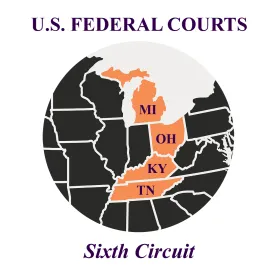Executing a general release did not waive a former employee’s claims under the Uniformed Services Employment and Reemployment Rights Act of 1994 (USERRA), a federal district court in Tennessee has ruled, granting summary judgment to the employee. Ward v. Shelby County, No. 2:20-cv-02407 (W.D. Tenn. June 25, 2021).
The court stressed that, to be enforceable, a general release agreement requires specific language and valuable consideration when an employee is being asked to waive USERRA claims or claims based on an employee’s military service.
Background
Plaintiff Sedric Ward was employed by Shelby County, Tennessee, at the county jail. He also served in the United States Army Reserve while employed by the County. In 2013, the County Sheriff audited the Jail’s Human Resources Department records and found instances of misuse of paid military leave, among other policy violations. After Ward failed to appear in response to a request for information in the County’s administrative investigation, the investigator concluded Ward violated County policy in taking his military leave. In response to the alleged violation, Shelby County terminated Ward.
More than one year later, Shelby County offered to reinstate Ward and provide him three weeks of backpay in exchange for executing a General Release Agreement. Ward executed the Agreement, which released “any and all claims whatsoever, both known and unknown.” After signing the agreement, Ward decided not to return and sued the County.
Ward sought a declaration that the County’s leave policies violate USERRA, a declaration that he did not waive his USERRA claims by executing the Agreement, and damages for discrimination and retaliation under USERRA.
Court Decision
Because the rights granted by the Agreement were not as valuable or beneficial as the rights Ward gave up (which amounted to more than one year of back pay), the court ruled the Agreement lacked sufficient consideration and, therefore, was unenforceable under USERRA § 4302(b). The court emphasized that USERRA § 4302(b) supersedes any agreement that “reduces, limits, or eliminates” USERRA rights.
The court also found the Agreement failed to specifically address waiver of USERRA claims or any other claims based on an employee’s military status, as required by the U.S. Court of Appeals for the Sixth Circuit. (The Sixth Circuit has jurisdiction over Kentucky, Michigan, Ohio, and Tennessee.) The language in a release agreement must be “clear, specific and unequivocal as to the waiver” of USERRA claims by a party with knowledge of the USERRA rights being waived, the court explained.
Additionally, the court denied both parties’ cross-motions for summary judgment on Ward’s USERRA discrimination and retaliation claims because disputes of material fact existed as to whether the County’s actions were motivated by Ward’s military service. The court concluded Ward lacked standing to challenge the County’s leave policies, as the policies were enacted after he was terminated, and he suffered no injury as a result.
This decision reminds employers in the Sixth Circuit that they must include specific language in general release agreements when an employee is being asked to waive USERRA claims or claims based on an employee’s military service. Otherwise, the employer risks losing protection under the release. Further, employers must offer valuable consideration in exchange for the release of such claims.






 />i
/>i

